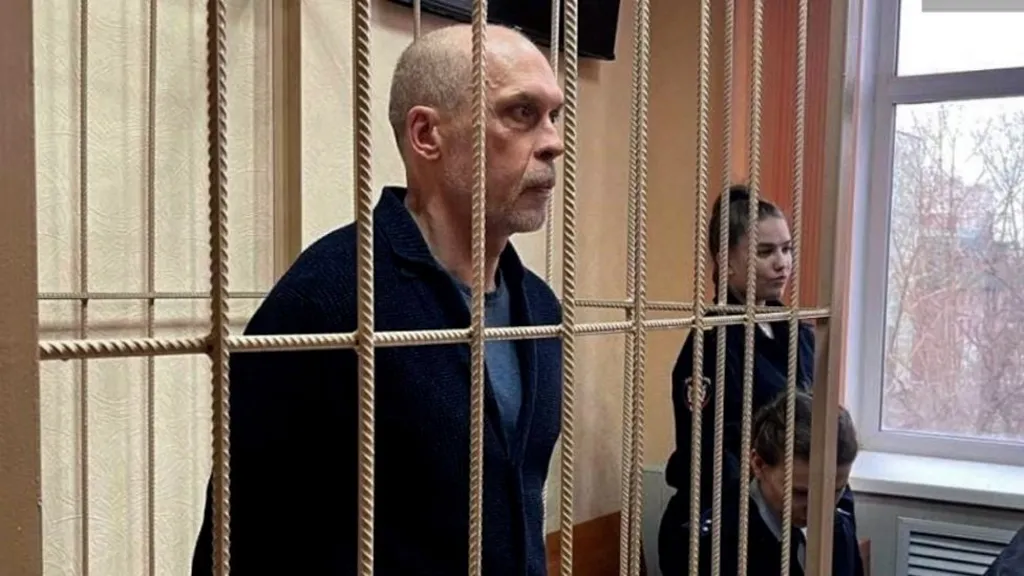Russians Faced with Choice: Join the Military or Face Criminal Charges
4 min read
Andrey Perlov has been told his case will be frozen if he joins the army

Andrey Perlov has been told his case will be frozen if he joins the army
On the morning of March 28, a police team arrived at the home of Andrey Perlov in Novosibirsk, Siberia, accusing him of embezzling approximately three million roubles (around $32,000 or £24,000) from a local football club where he served as managing director. Perlov, a 62-year-old Olympic gold medalist in the 50km race walk from the 1992 Olympics, and his family vehemently deny these allegations.
Detained for over six months, Perlov’s family claims he is being coerced into enlisting to fight in Ukraine. Authorities have allegedly promised that if he agrees to serve, the embezzlement charges against him would be frozen and potentially dismissed once the war concludes. This troubling development illustrates a broader trend in Russia, where the recruitment of prisoners for military service is expanding to include individuals who have yet to stand trial.
Recent legal changes now require both prosecution and defense attorneys to inform those charged with most crimes that they have the option to enlist in the military rather than face court proceedings. This legislation, enacted in March 2024, stipulates that if an accused individual signs up for military service, their prosecution will be halted, and their cases will typically be closed at the end of the war.
“This has turned Russia’s law enforcement system upside down,” remarked Olga Romanova, director of the NGO Russia Behind Bars, which offers legal aid to detainees. She illustrated the absurdity of the situation by noting that a person could be apprehended for murder only to pivot and request to join a military operation, resulting in the immediate cessation of their criminal case.
A leaked audio recording obtained by the BBC reveals an investigator discussing the benefits of signing up for military service with the family of a convicted thief. “He can get six more years for this other crime,” the investigator tells them, adding that if the accused enlists, his case will be closed. Upon signing, individuals can be sent to the front lines almost immediately after their cases are suspended.
Three lawyers operating in Russia confirmed that this practice is now commonplace. Some individuals see enlistment as a way to avoid incarceration and a criminal record. However, this choice can have dire consequences, as illustrated by the tragic case of Yaroslav Lipavsky. Accused of inflicting serious harm, Lipavsky enlisted as soon as he turned 18 to evade prosecution. He was sent to Ukraine, where he was killed just a week later, becoming one of the youngest soldiers to die in the conflict.
While the exact number of accused individuals choosing military service over trial is unclear, this shift in policy highlights Russia’s pressing need for troop reinforcements while attempting to limit the mobilization of civilians. Military analyst Michael Koffman of the Carnegie Endowment for International Peace noted that the Russian government likely views these individuals as expendable, assuming their absence would not significantly impact the economy.

Initially, the Wagner Group, a private military company, primarily recruited from high-security prisons, capitalizing on the skills of convicts in exchange for pardons. However, as the conflict in Ukraine escalated, the Russian government adapted its recruitment strategies to include individuals accused of crimes who have yet to be sentenced.
Reports and documents from both the BBC and Russian media outlet Mediazona confirm that nearly 50,000 inmates were recruited by Wagner, with daily casualties reaching up to 200 in some instances. Each prisoner’s dog tag starts with the letter “K” for “kolonya,” denoting prison colony, followed by numbers that identify their specific prison and order of recruitment.
The toll has been heavy: records indicate that over 17,000 prisoners were killed attempting to capture the eastern city of Bakhmut between July 2022 and June 2023 alone. To counter these losses, the Russian Ministry of Defence has broadened its recruitment criteria to maintain a steady supply of soldiers.
While some accused individuals reject this option for various reasons—including ideological opposition to the war, fear of injury, or a desire to fight their charges—pressure from authorities can be overwhelming. Alina, Perlov’s daughter, recounted her father’s experience, stating that after he refused to enlist, he was placed in a punitive cell and subjected to further pressure.
The family remains hopeful of proving Perlov’s innocence, but they are deeply concerned for his well-being. The last time Alina saw her father in court, he appeared frail and distressed. “He tries to keep himself cheerful,” she said, “but if this continues, they will break him.”
When approached for comment on Perlov’s case and the alleged coercion of detainees into military service, Russian authorities did not respond. The situation raises significant ethical and humanitarian concerns about the treatment of individuals within the Russian legal system amid the ongoing conflict in Ukraine.